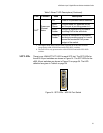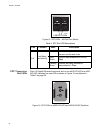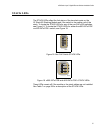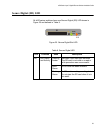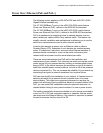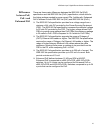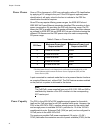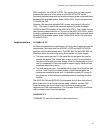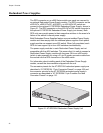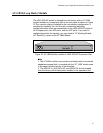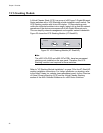
x600 Series Layer 3 Gigabit Ethernet Switches Installation Guide
41
Power Over Ethernet (PoE and PoE+)
The following section applies to x600-24Ts-POE and x600-24Ts-POE+
Gigabit Ethernet switches only.
The 10/100/1000Base-T ports on the x600-24Ts-POE switch feature
Power over Ethernet (PoE), defined in the IEEE 802.3af standard.
The 10/100/1000Base-T ports on the x600-24Ts-POE+ switch feature
Power over Ethernet Plus (PoE+), defined in the IEEE 802.3at standard.
PoE is a mechanism for supplying power to network devices over the
same twisted pair cables used to carry network traffic. This feature can
simplify network installation and maintenance by allowing you to use the
switch as a central power source for other network devices.
A device that receives its power over an Ethernet cable is called a
Powered Device (PD). Examples of such devices are wireless access
points, IP telephones, web cams, and even other Ethernet switches. A
powered device connected to a port on the switch will receive both
network traffic and power over the same twisted pair cable.
There are several advantages that PoE add to the installation and
maintenance of your network. First, because the switch acts as the central
power source for your powered devices, adding an uninterruptible power
source (UPS) to the switch increases the protection not just to the switch
itself from possible power source problems, but also to all of the powered
devices connected to it. This can increase the reliability of your network by
minimizing the impact to network operations from a power failure.
PoE can also simplify the installation of your network. A frequent issue in
selecting a location for a network device is whether there is a power
source nearby. This often limits equipment placement or requires the
added cost and time of having additional electrical sources installed. With
PoE, you can install PoE-compatible network equipment wherever it is
needed without having to worry about whether it is near a power source.
The switch automatically determines whether or not a device connected to
a port is a PD. A PD has a signature resistor or capacitor that the switch
can detect over the Ethernet cabling. If the resistor or capacitor is present,
the switch assumes that the device is a PD.



